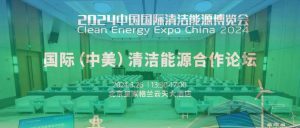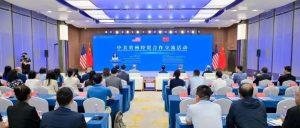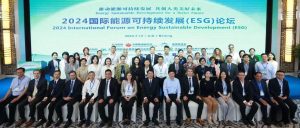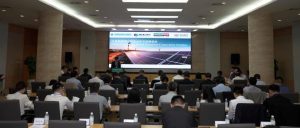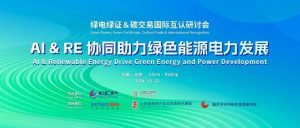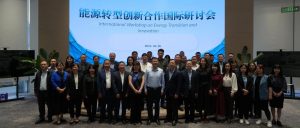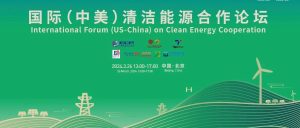2022年1月7日,中美能源合作项目 (ECP) 与中国石油和化学工业联合会国际交流和外企委员会联合主办,中国产业发展促进会生物质能产业分会、中国能源研究会能源与环境专业委员会和未来碳中和研究院协办的碳中和-清洁燃料研讨会在京成功召开。本次研讨会采用了线上和线下相结合的形式,并通过直播将研讨会同步分享给在线嘉宾与观众。来自国际能源署、美国驻华大使馆、标准机构、行业协会、学术机构和中外企业代表线上线下共计六千八百多人次观看。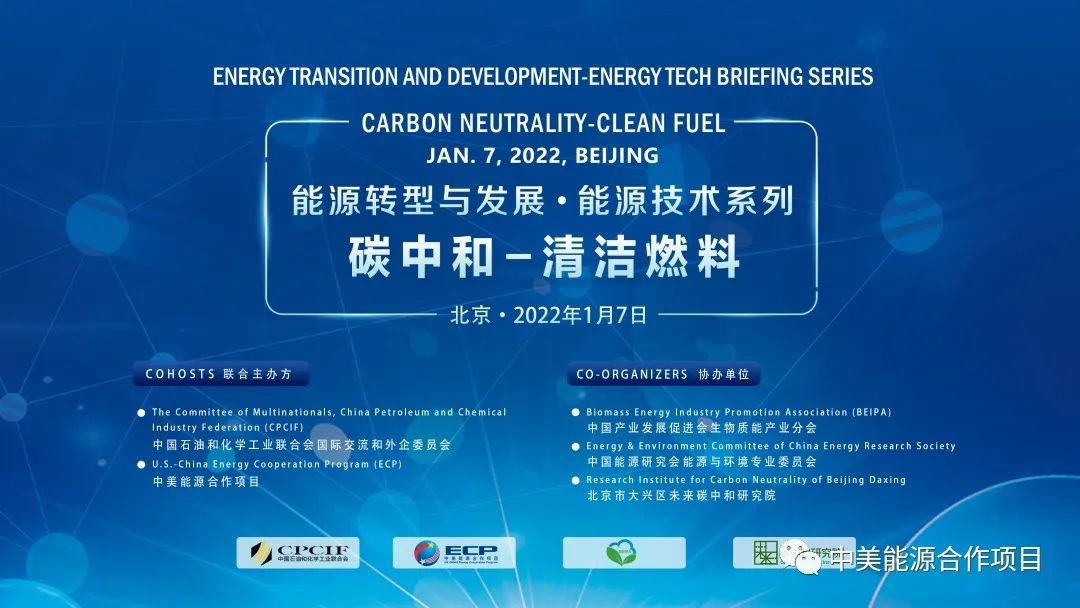
ECP董事会联席主席Mark Thurber先生和中国石油和化学工业联合会副秘书长庞广廉先生分别做了致辞,充分肯定认可了在全球应对气候危机和力争实现碳中和的大背景下,碳中和技术将会发挥重要作用,清洁燃料领域的技术交流和国际合作是行业健康发展的必备条件。同时也表达了对本次会议的期望,肯定了一年来各方合作伙伴在推动清洁燃料领域开展的工作。
此次能源技术培训交流活动,以清洁燃料技术为主线,邀请了八位国内外知名清洁燃料专家就清洁燃料行业的现状从政策、技术、前景和合作机遇、如何应对气候危机所能起的作用以及面临的挑战做了深度分享。
o 国际能源署能源(IEA)技术和政策部门Praveen Bains女士认为,低碳燃料在帮助中国实现碳中和方面可以发挥重要作用。到2060年,低碳燃料主要来自生物燃料、氨和合成煤油。低碳燃料如果在中国清洁能源转型中发挥作用,需要确保生物质的利用是真正的可持续发展。中国具备实现碳中和愿景的许多优势,尤其是在技术和能源政策方面拥有领先地位,因此开展与中国的合作至关重要。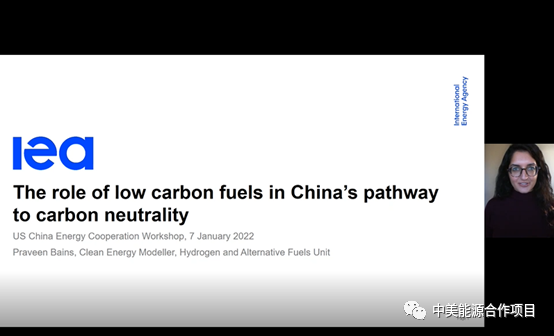
o 国际清洁交通委员会燃料项目(ICCT)研究员周圆融女士就生物燃料和氢燃料在交通运输中的碳排放进行了分析,她认为应对气候变化方面,原料的选择比燃料的选择更重要,各种废弃物生产的燃料碳排放较低。她提出如下建议:应对清洁燃料给予长期政策支持;根据碳减排的效果对不同的燃料采取不同的激励措施;要在全生命周期内评价燃料的碳排放。
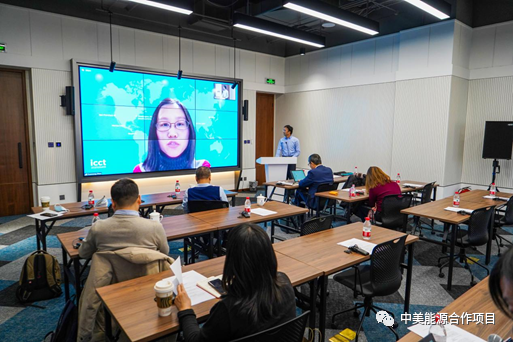
o 南加州天然气公司业务发展高级总监Yuri Freedman先生分享了南加州天然气公司在碳中和过程中的重要角色以及氢燃料在清洁燃料战略中重要的作用。他介绍氢能将通过天然气管网实现长距离运输,加拿大和意大利允许5%的氢气注入天然气管网,德国允许5-10%,法国允许10%。同时介绍了氢能在家庭、大型客运汽车、重型卡车、海运方面的应用。
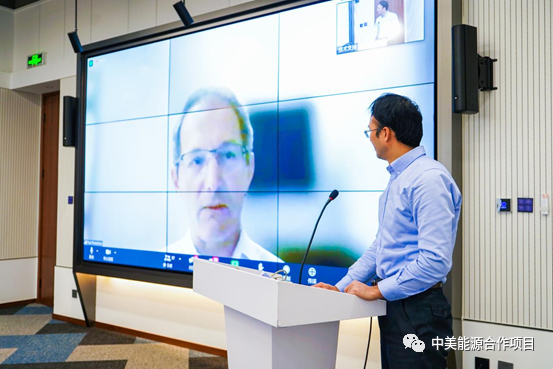
o 霍尼韦尔特性材料和技术集团亚太区副总裁兼首席技术官周麓波先生介绍了霍尼韦尔UOP做为是世界上第一个开发出从可再生原料生产绿色柴油和SAF的公司,其技术与产品已被广泛应用。UOP拥有生物精炼技术,通过优化原料和反应步骤,可以生产高品质的生物航煤,为航空碳减排做出贡献。
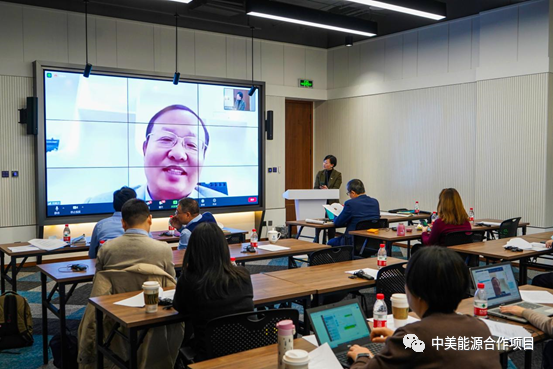
o 哥伦比亚大学全球能源中心涂建军博士以双碳目标下的中国燃料清洁转型做了专题报告,指出中美能源与气候合作在全球碳中和目标大背景下的重要性需要智慧地向前推进,氢能经济、碳捕捉与利用,电力体制改革是中国清洁燃料转型的关键所在,化石能源的原料化利用与燃料清洁转型密不可分,两者之间的关系需要进一步研究。
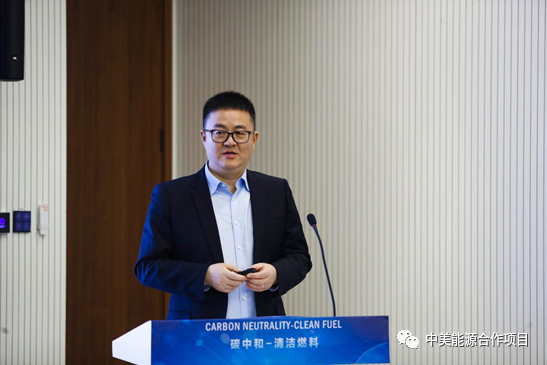 o 全国生物柴油产业工作组孙善林秘书长与大家分享汇报了碳中和背景下中国的生物柴油现状、机遇及挑战。2020年,我国2020年我国生物柴油产量125万吨,其中出口约91万吨。生物柴油技术目前逐渐从酸碱两部分为主向生物酶法转变。生物柴油具有很好的减碳作用,他建议:建立原料供应保障机制;细化《可再生能源法》、《生物柴油产业发展政策》实施细则;加大生物柴油行业政策扶持力度和政府的强力推动。
o 全国生物柴油产业工作组孙善林秘书长与大家分享汇报了碳中和背景下中国的生物柴油现状、机遇及挑战。2020年,我国2020年我国生物柴油产量125万吨,其中出口约91万吨。生物柴油技术目前逐渐从酸碱两部分为主向生物酶法转变。生物柴油具有很好的减碳作用,他建议:建立原料供应保障机制;细化《可再生能源法》、《生物柴油产业发展政策》实施细则;加大生物柴油行业政策扶持力度和政府的强力推动。
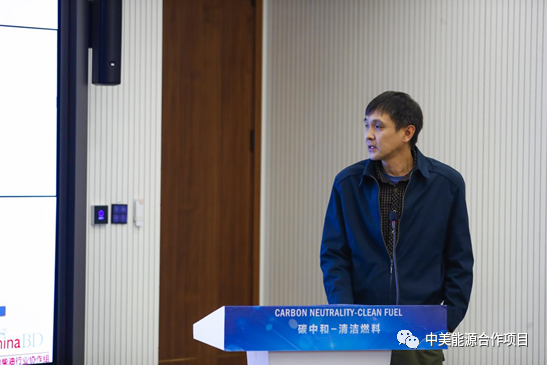 o 全球甲醇行业协会中国区首席代表赵凯先生也全面介绍了甲醇燃料的技术现状和进展,以及甲醇在全球包括中国燃料市场的应用情况,报告特别提到绿色甲醇可再生甲醇的技术和市场前景,参会人员纷纷表示对绿色甲醇有了更新鲜的认识和了解。
o 全球甲醇行业协会中国区首席代表赵凯先生也全面介绍了甲醇燃料的技术现状和进展,以及甲醇在全球包括中国燃料市场的应用情况,报告特别提到绿色甲醇可再生甲醇的技术和市场前景,参会人员纷纷表示对绿色甲醇有了更新鲜的认识和了解。
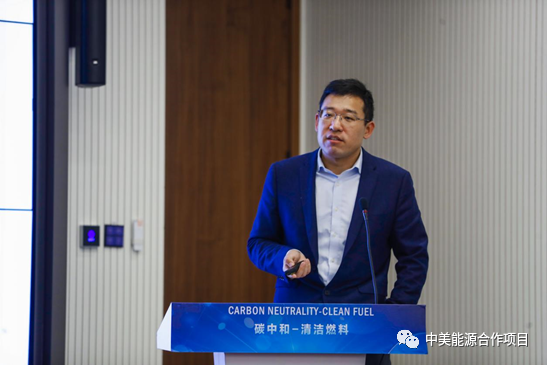 o 中国石油和化学工业规划院能源化工处刘思明副处长就双碳背景下中国氢燃料与氨燃料产业发展展望的题目做了主旨发言,从双碳政策影响分析,到重点行业碳达峰时间表及行动方案,强调指出能源结构变革加速,清洁能源供给比例将大幅提升,脱碳成为变革主题,双碳政策将带动清洁能源应用场景的扩宽,氢能源产业将加速发展带动万亿级产业增长,氨燃料作为氢载体可以提高氢能的高效运输,也将在清洁能源的快速发展中受益,不过绿氨技术的发展和成本考量还是受限具有挑战。
o 中国石油和化学工业规划院能源化工处刘思明副处长就双碳背景下中国氢燃料与氨燃料产业发展展望的题目做了主旨发言,从双碳政策影响分析,到重点行业碳达峰时间表及行动方案,强调指出能源结构变革加速,清洁能源供给比例将大幅提升,脱碳成为变革主题,双碳政策将带动清洁能源应用场景的扩宽,氢能源产业将加速发展带动万亿级产业增长,氨燃料作为氢载体可以提高氢能的高效运输,也将在清洁能源的快速发展中受益,不过绿氨技术的发展和成本考量还是受限具有挑战。
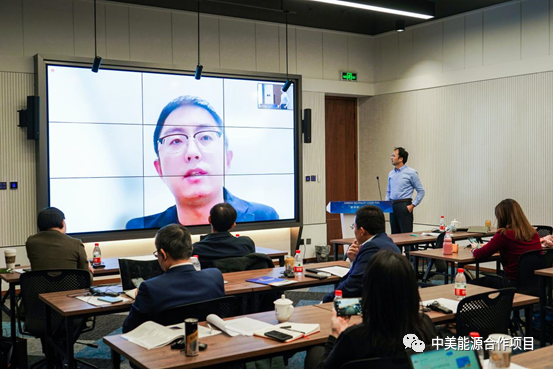
清洁燃料作为可再生能源开发利用的重要方向,其发展前景被各国广泛看好。这次技术交流研讨会将为接下来的行业合作与示范打好基础,我们将与各方合作伙伴一起,从政策标准到技术商务切实落实合作,助力碳达峰碳中和,让清洁燃料应用更广泛、更经济、更高效、更低碳。
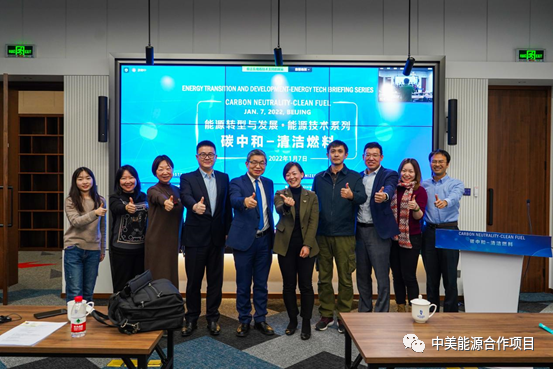
【Energy TECH Briefing Series】
Carbon Neutrality-Clean Fuel
On January 7, 2022, co-hosted by Energy Cooperation Program (ECP) and The Committee of Multinationals, China Petroleum and Chemical Industry Federation (CPCIF), co-organized by The Biomass Energy Industry Council (BEIC) of China Association for the Promotion of industry Development (CAPID-BEIC), China Energy and Environment Industry Association (CEEIA) of China Energy, Research Institute for Carbon Neutrality of Beijing Daxing, the “Carbon Neutrality-Clean Fuel Seminar” was successfully held in Beijing. The seminar was a combination of online and offline and was shared to online viewers simultaneously through live streaming. Accumulative toal of online audience reached more than 6,800 from International Energy Agency (IEA), the U.S. Embassy in China, standardization agencies, industry associations, academic institutions and Chinese and international enterprises.
Mr. Mark Thurber, Cochair of ECP board executive, and Mr. Pang Guanglian, Deputy Secretary General of CPCIF, delivered remarks, fully affirming the important role that carbon neutrality technology plays in the context of the global response to the climate crisis and efforts to achieve carbon neutrality. Technical exchanges and international cooperation in clean fuels are essential for the healthy development of the industry. Also, they expressed their expectations for the seminar and affirmed the work of partners in promoting clean fuels over the past year.
This training seminar focused on clean fuel technology. Eight well-known clean fuel experts at home and abroad were invited to make in-depth sharing on the current situation of clean fuel industry from the perspectives of policies, technologies, prospects, and cooperation opportunities, as well as the role they can play in coping with the climate crisis and the challenges they face.
l Ms. Praveen BAINSA, from Energy Technology and Policy division, International Energy Agency (IEA), believes that low-carbon fuels play an important role in helping China to achieve carbon neutrality. By 2060, low-carbon fuels will come mainly from biofuels, ammonia, and synthetic kerosene. If low-carbon fuels are to play a role in China’s clean energy transition, they need to ensure that biomass use is truly sustainable.China has many of the advantages to achieve a carbon-neutral vision, particularly its leadership in technology and energy policy, so working with China is crucial.
l Ms. Zhou Yuanrong, researcher of fuels at International Council of Clean Transportation (ICCT), analyzed the carbon emissions from biofuels and hydrogen fuels in transportation. She believes that the choice of raw materials is more important than the choice of fuels to combat climate change, and that fuels made from a variety of waste products have lower carbon emissions. She recommends long-term policy support for cleaner fuels, different incentives for different fuels according to the effect of carbon emission reduction and carbon emissions from fuels should be evaluated throughout their life cycle.
l Dr. Yuri Freedman, Senior Director of Business Development Southern California Gas Company, shared the company’s important role in carbon neutrality and the role hydrogen plays in its clean fuel strategy. He said that hydrogen would be transported over long distances through natural gas networks, with Canada and Italy allowing 5 percent of hydrogen to be injected into natural gas networks, Germany allowing 5-10 percent and France allowing 10 percent. The application of hydrogen energy in household, large passenger vehicle, heavy truck and marine transportation is also introduced.
l Mr. Zhou Lubo, vice president and chief technology officer of Performance Materials and Technologies (PMT) at Asia Pacific region
of Honeywell, introduced Honeywell UOP as the first company in the world to develop green diesel and SAF from renewable materials, and its technology and products have been widely used. UOP has bio-refining technology that can contribute to aviation carbon reduction by optimizing feedstocks and reaction steps to produce high-quality bio-jet coal.
l Dr. Jianjun Tu form Global Energy Center at Columbia University delivered report on China’s clean fuel transition under dual carbon goals, pointing out that the importance of China-US energy and climate cooperation in the context of global carbon neutrality needs to be moved forward intelligently. Hydrogen economy, carbon capture and utilization, and power system reform are key to China’s clean fuel transition. The feedstock utilization of fossil energy is inseparable from the clean fuel transition, and the relationship between the two needs further study.
l Mr. Sun Shanlin, Secretary General of national biodiesel industry working group, reported the status quo, opportunities,and challenges of Biodiesel in China under the background of carbon neutrality. In 2020, China produced 1.25 million tons of biodiesel, of which 910,000 tons were exported. Biodiesel technology is gradually changing from acid-base to enzymatic method. Biodiesel has a good carbon reduction effect. He suggested the establishment of raw material supply guarantee mechanism; detailed implementation rules for the Renewable Energy Law and the Biodiesel Industry Development Policy; Increase policy support for biodiesel industry and government’s strong promotion.
l Mr. Zhao Kai, China Chief Representative of Methanol Institute, also introduced the technical status and progress of methanol fuel, as well as the application of methanol in the global fuel market including China. The report specifically mentioned the technology and market prospect of green methanol renewable methanol, and the participants all expressed that they had a fresher understanding of green methanol.
l Mr. Liu Siming, Deputy Director of Energy and Chemical Industry Department, China Institute of Petroleum and Chemical Industry Planning, delivered a keynote speech on the development prospect of Hydrogen and ammonia fuel industry in China under the dual carbon background. He analyzed the impact of the dual carbon policy, as weell as the carbon peak schedule and action plan for key industries. It is emphasizeid that with the acceleration of energy structure reform, the iproportion lof clean energy supply will be greatly increased, decarbonization will become the theme of reform, and the dual carbon policy will drive the expansion of clean energy application scenarios. Hydrogen energy industry will accelerate the development and drive the trillion-level industry growth. Ammonia fuel, as a hydrogen carrier, can improve the efficient transportation of hydrogen energy and also benefit from the rapid development of clean energy. However, the development of green ammonia technology and cost considerations are still limited and challenging.
Clean fuel as an important direction of renewable energy development and utilization, its development prospects are widely optimistic. This seminar will lay the foundation for further industry cooperation and demonstration. We will work with partners to promote cooperation on policies and standard development, exchange and cooperation on business and projects, to support to achieve the dual carbon targets, and to make clean fuel in application more widely,economically, efficiently.


